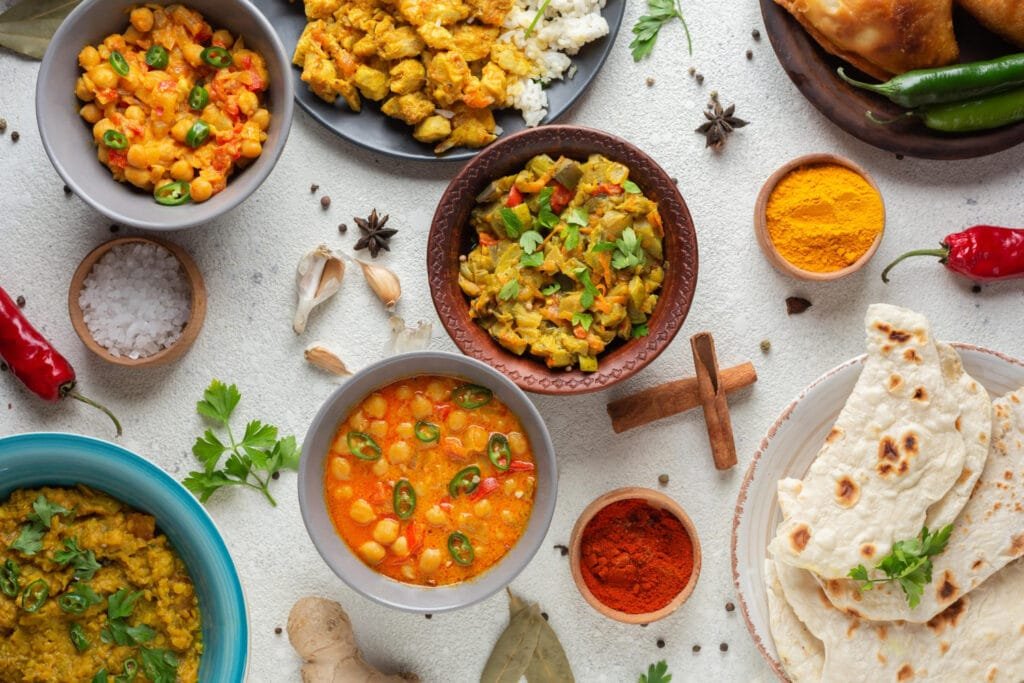Exploring the Health Benefits of 10 Traditional Indian Foods
Indian foods are globally celebrated for their rich flavors, diverse ingredients, and intricate preparation techniques. However, beyond the pleasure of taste, traditional Indian foods are packed with numerous health benefits deeply rooted in Ayurveda and time-tested cooking practices.
The Ayurvedic Foundation of Indian Foods
Traditional Indian foods are heavily influenced by Ayurveda, a holistic healing system that dates back thousands of years. According to Ayurveda, food is not merely fuel but medicine that nourishes the body, mind, and soul. This approach emphasizes the balance of six tastes—sweet, salty, sour, bitter, pungent, and astringent—to maintain optimal health.
Traditional Indian diets use natural and locally available ingredients to boost immunity, improve digestion, and promote overall well-being. Let’s explore some of the most popular Indian foods and their health benefits.
1. Buttermilk (छाछ)
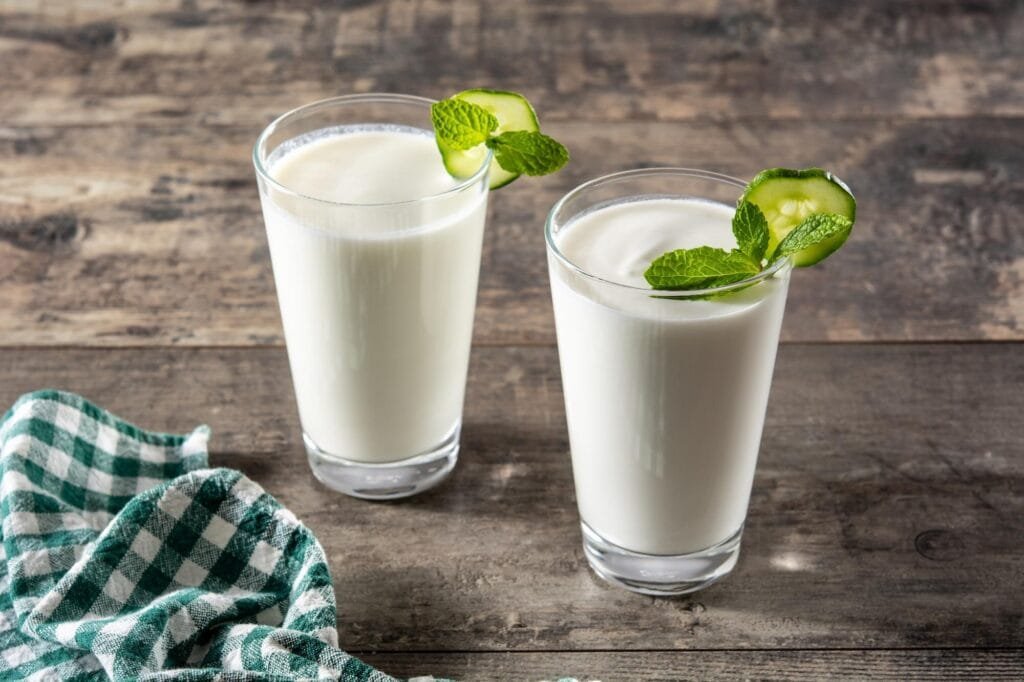
Buttermilk is a staple in many Indian households, especially in rural areas. It is prepared by churning yogurt with water and sometimes adding spices like cumin and salt.
- Health Benefits:
- Improves digestion and maintains gut health due to its probiotic content.
- Low-fat content makes it suitable for weight-conscious individuals.
- High in calcium and vitamin B12, essential for bone health and energy production.
- The cooling effect helps in reducing body heat and preventing dehydration.
- Aids in reducing acidity and boosts metabolism.
2. Turmeric (हल्दी)
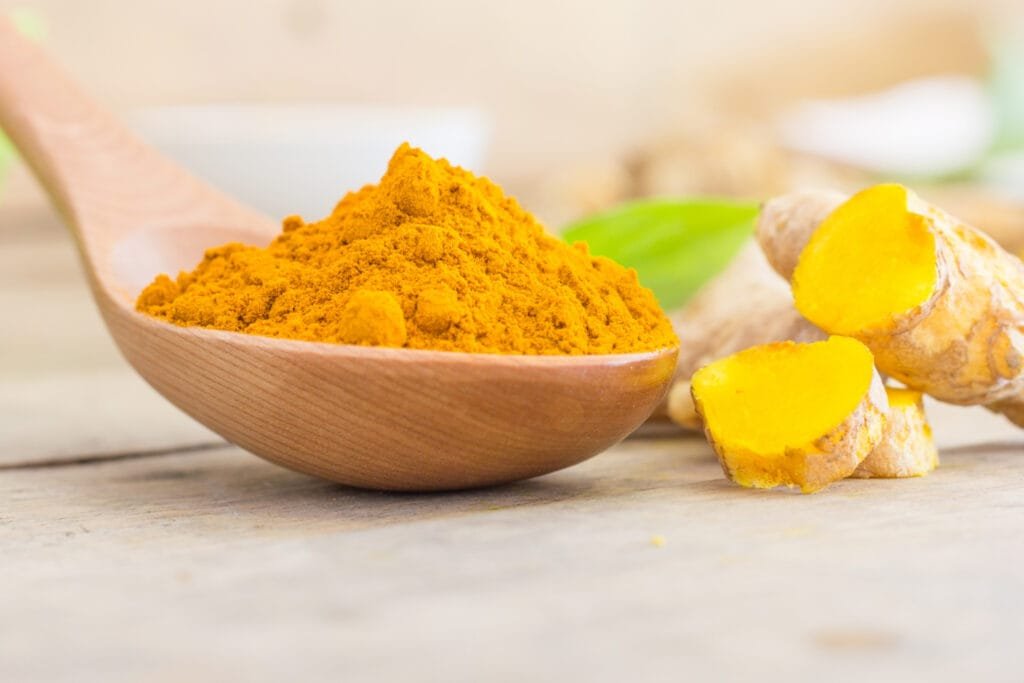
Turmeric is one of the most famous Indian spices known for its medicinal properties. Used for centuries as a natural remedy for various ailments, turmeric contains curcumin, a powerful anti-inflammatory and antioxidant compound.
- Health Benefits:
- Fights inflammation and prevents chronic diseases such as arthritis.
- Boosts immunity and helps the body fight infections.
- Promotes heart health by improving blood circulation and reducing cholesterol.
- Aids in skin healing and improves overall skin health.
- Enhances brain function and may lower the risk of neurological diseases.
3. Ghee (घी)

Ghee, or clarified butter, is a common ingredient in Indian cooking. Unlike regular butter, ghee is rich in healthy fats and has a high smoke point, making it suitable for various cooking methods and the best Indian food for everyone.
- Health Benefits:
- Promotes digestion by stimulating the secretion of digestive enzymes.
- Enhances nutrient absorption, particularly fat-soluble vitamins (A, D, E, K).
- Supports brain function, memory enhancement, and overall cognitive health.
- Provides sustained energy and boosts metabolism.
- Has anti-inflammatory properties that support joint health.
4. Lentils (दाल)
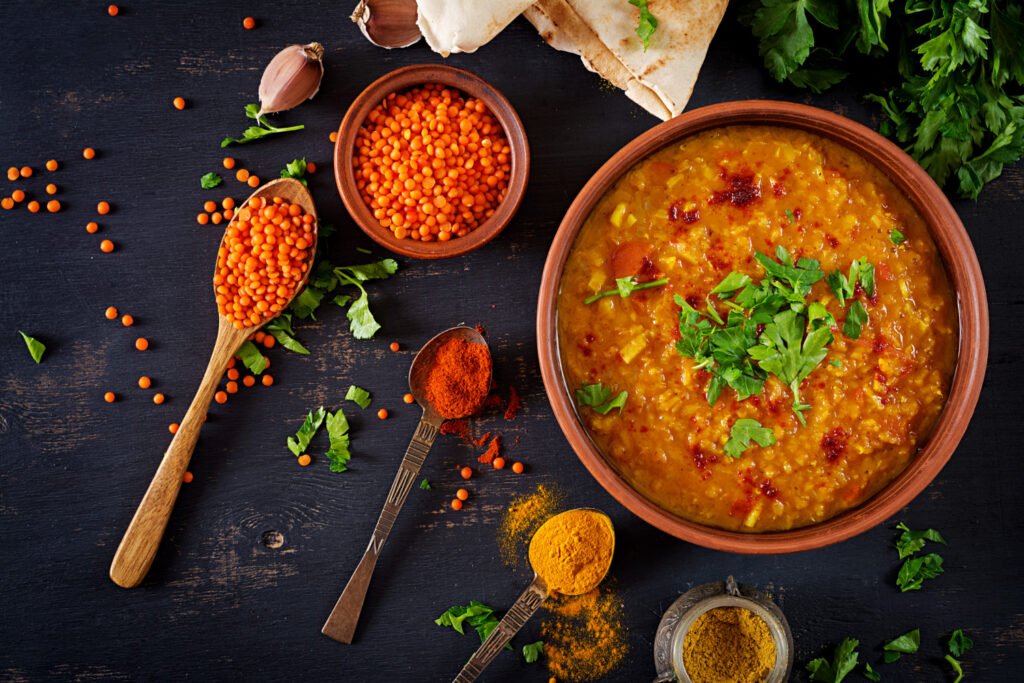
Lentils are a primary protein source for millions of Indians, particularly those who follow vegetarian or vegan diets.
- Health Benefits:
- High protein content makes them an excellent meat substitute.
- Rich in dietary fiber, aiding in digestion and preventing constipation.
- Improves heart health by lowering cholesterol and regulating blood pressure.
- Provides essential minerals like iron, potassium, and magnesium.
- Aids in weight management due to high satiety.
5. Millets (बाजरा, रागी, ज्वार, आदि)
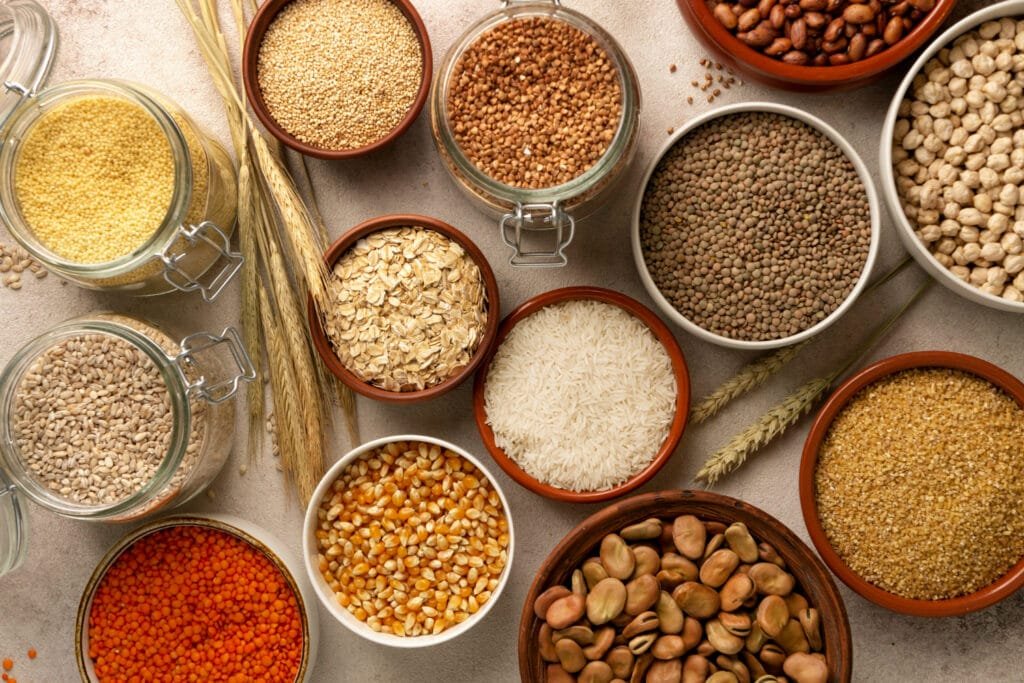
Millets are ancient grains that have recently gained popularity worldwide for their nutritional value and gluten-free nature.
- Health Benefits:
- Rich in antioxidants and dietary fiber, promoting heart health and digestion.
- Helps in managing diabetes by controlling blood sugar levels.
- Provides essential nutrients like calcium, iron, and magnesium.
- Supports weight loss and boosts energy levels.
- Suitable for gluten-intolerant individuals.
6. Amla (आंवला)
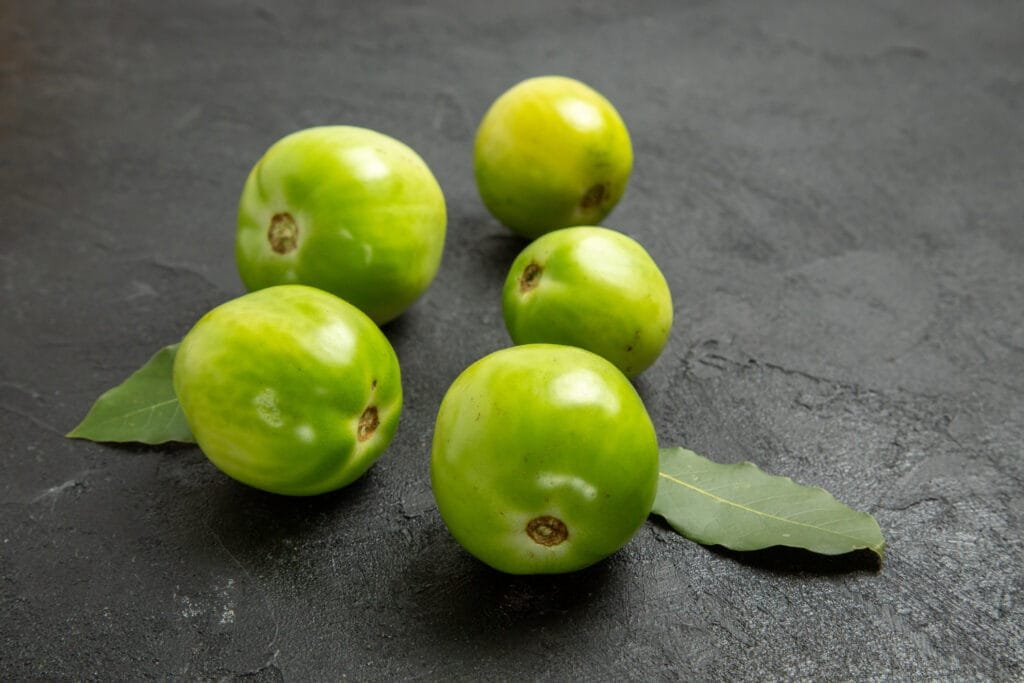
Amla, or Indian gooseberry, is a nutrient powerhouse, especially known for its high vitamin C content.
- Health Benefits:
- Boosts immunity, enhances skin health, and promotes hair growth.
- Regulates blood sugar levels, beneficial for diabetics.
- Supports liver function and promotes detoxification.
- Improves eyesight and overall cardiovascular health.
- Aids digestion and metabolism.
7. Neem (नीम)

Neem is known for its bitter taste and is often consumed as juice or powder.
- Health Benefits:
- Purifies blood and promotes skin health.
- Antibacterial, antiviral, and anti-inflammatory properties boost immunity.
- Helps in managing blood sugar levels effectively.
- Supports oral hygiene and dental health.
- Prevents various infections and diseases.
8. Coconut (नारियल)

Coconut, used in various forms such as coconut oil, water, or flesh, is a common ingredient in Indian cooking.
- Health Benefits:
- Rich in healthy fats that enhance brain function and boost energy.
- Promotes hydration and electrolyte balance.
- Improves digestion and supports gut health.
- Benefits skin and hair due to its moisturizing properties.
- Contains antioxidants that help reduce inflammation.
9. Sattu (सत्तू)
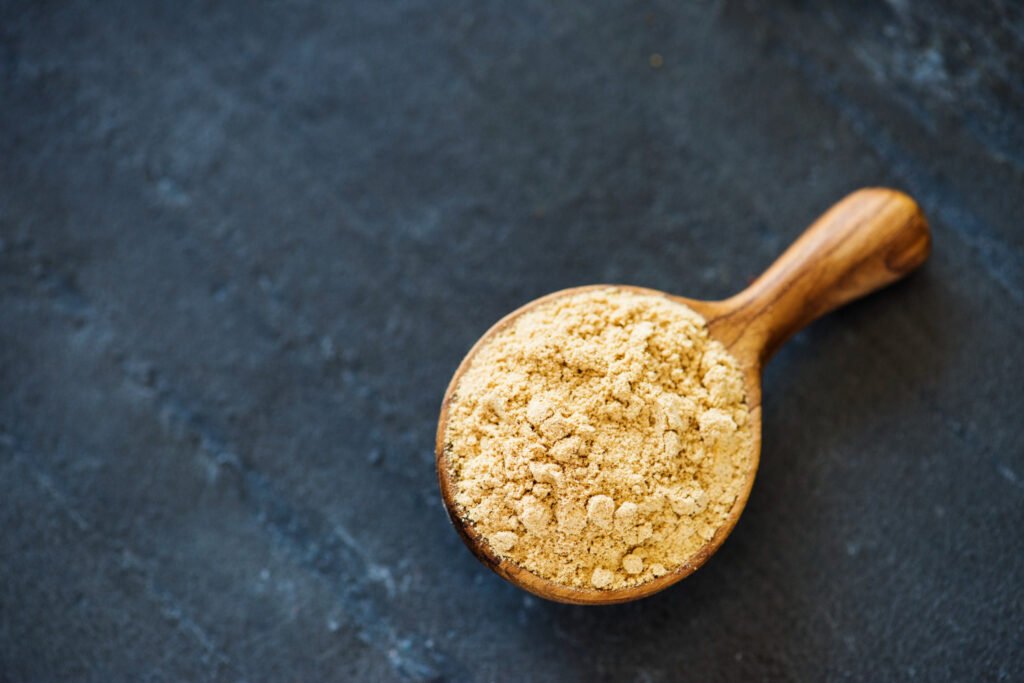
Sattu is a traditional Indian flour made from roasted gram or other grains.
- Health Benefits:
- High in protein and fiber, providing sustained energy.
- Promotes digestion and improves metabolism.
- Has a natural cooling effect on the body.
- Aids in weight management and muscle recovery.
- Rich in essential minerals like iron and magnesium.
10. Spices (मसाले – जीरा, धनिया, अदरक, आदि)
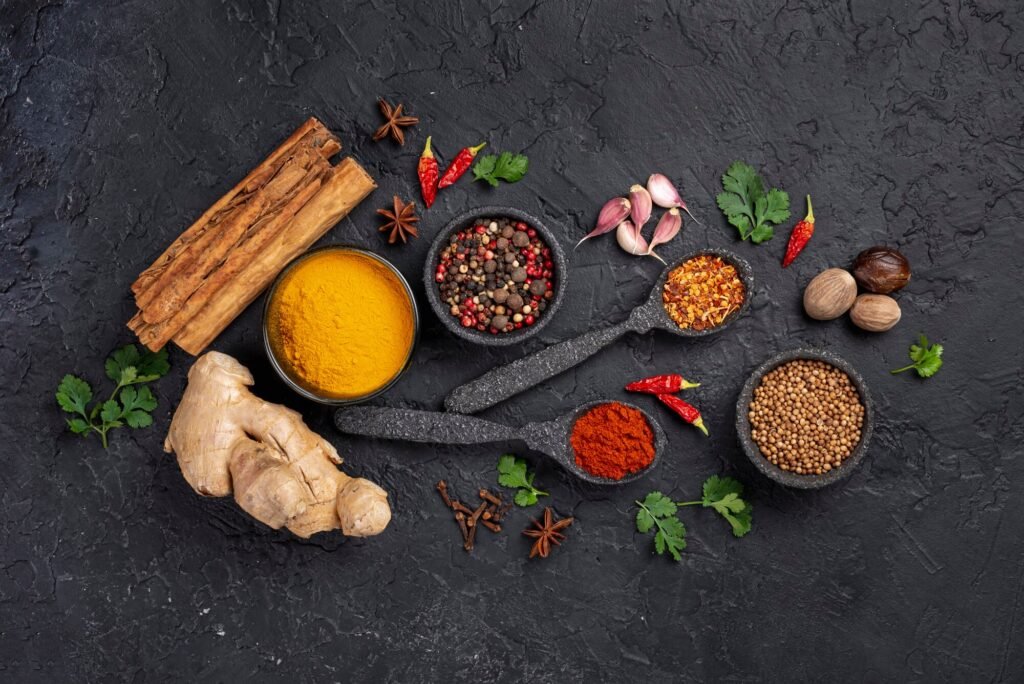
Indian foods are famous for their diverse spices, each offering unique health benefits.
- Health Benefits:
- Boosts metabolism and aids digestion.
- Rich in antioxidants that enhance immunity.
- Reduces inflammation and prevents chronic diseases.
- Regulates cholesterol and blood sugar levels.
- Enhances overall cardiovascular health.
Traditional Indian foods are more than just dishes; they are part of a centuries-old medicinal system. With scientific research increasingly supporting the health benefits of these foods, their relevance in modern diets continues to grow. Whether you’re looking to boost immunity, enhance digestion, or simply enjoy delicious and nutritious meals, incorporating these foods into your diet can be highly beneficial.

